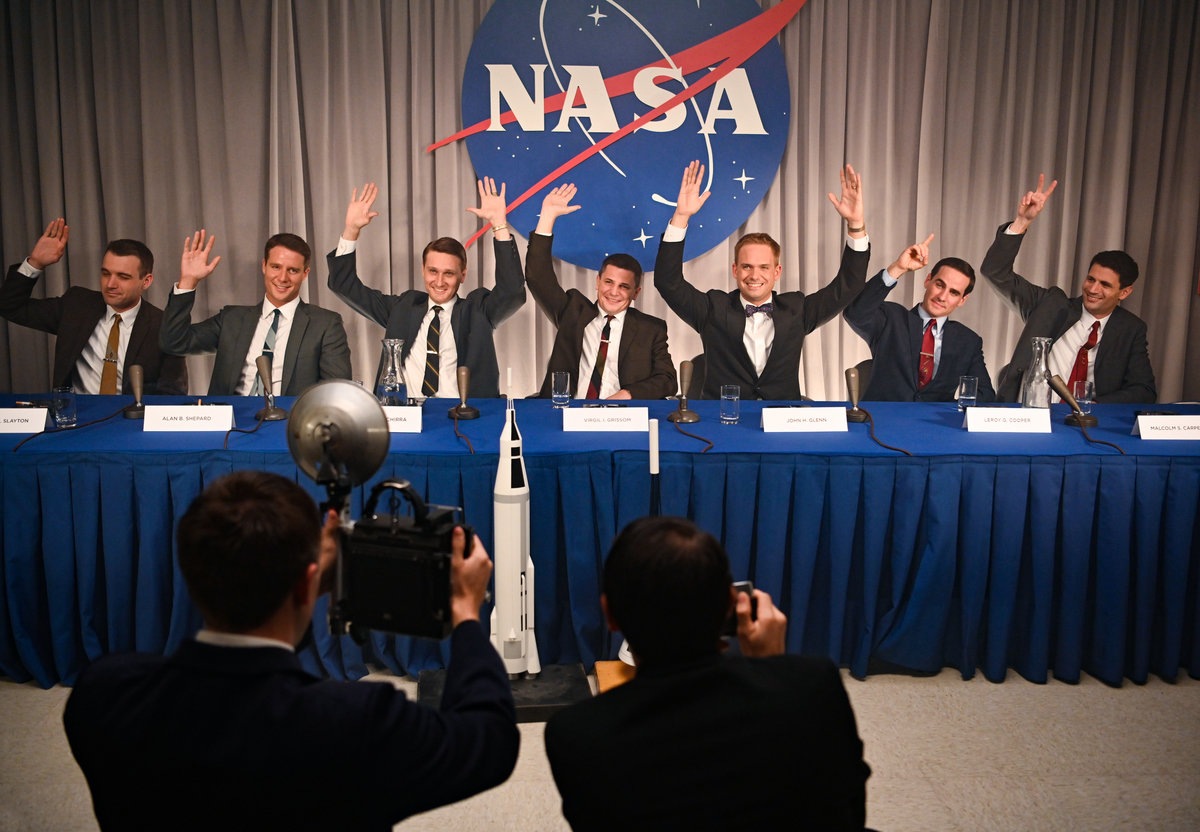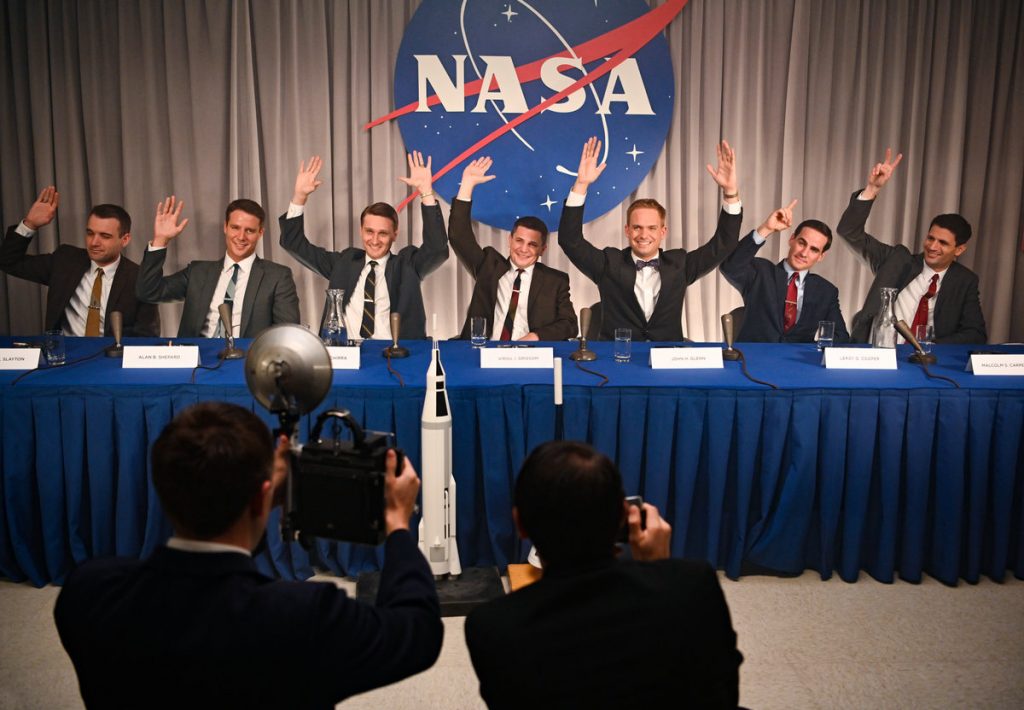

Somehow both edgy and airbrushed, superficially sparkling and troubled beneath the surface, The Right Stuff offers a warts-and-all revisionist history of the personalities behind the origins of NASA and the United States manned spaceflight program.
The drama of this latest Disney+ exclusive focuses not so much upon the international rivalry between the two superpowers competing in the space race, but upon the interpersonal rivalry between the two lead astronauts vying to be the first American in space.
John Glenn is an early to bed and early to rise tea-totalling Presbyterian and Alan Shepard is a hard-drinking adrenaline junky and unfaithful husband.
Amongst the cohort of aspiring star sailors, it is Glenn who stands out as the exception, and the dramatic beats of the series turn upon systematically dog-earing and scuffing up the glossy Time magazine images of these touted American heroes.
The performances are solid and the production values high, but as you might imagine from this approach to the topic, the composite portrait of humanity that emerges is something less than inspiring.
This is presumably deliberate, and in a detached sort of way is probably what interests most about the series. Not really what is portrayed – which is both watchable and missable – but who is doing the portraying, that is, the internet-age conglomerate descended from the corporate brainchild of Walt Disney.
The Right Stuff seems like a conscious turning over of a new leaf (or is the rolling over of an old log?) by the media titan famed for its airy, inconsequential children’s fare.
With its foregrounding of adult desires, dubious moral choices, and numerous scantily clad bedroom scenes, it appears that Disney+ might be trying to get in on the game of the grittier, less savoury content supplied by other streaming services.
In any case, what we see here gives the impression of the House of Mouse turned indecisively adolescent. And like a lot of adolescent transitions, the result is awkward, deeply conflicted, and not altogether attractive.
Indeed, the struggle between opposing personalities Glenn and Shepard might offer a kind of layered metaphor, on the one hand, for the behind-the-scenes corporate clawing for top spot that no doubt to some degree animates the series, and on the other, of a corresponding identity crisis within Disney Co. itself.
We might imagine on one of Mickey’s shoulders sits the old-fashioned, family-friendly ghost of John Glenn. On the other, the edge-pushing, wholesome-image-destabilizing tempting-spirit of Alan Shepard.
Which will prevail? Watch this space.
If the outcome of the conflict between the characters in this series is any indication, we may already be witnessing hints at which of these philosophies constitutes, at least for the up and coming generation of Disney content deciders, the right stuff.
